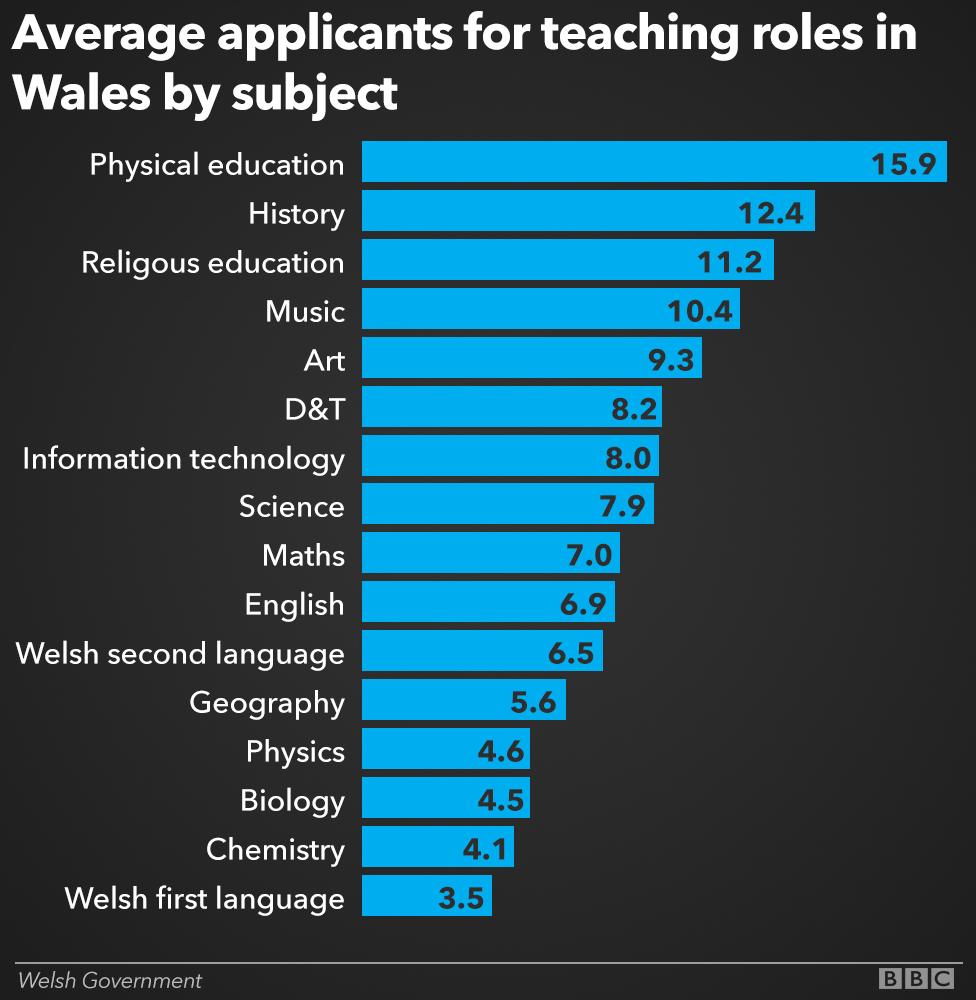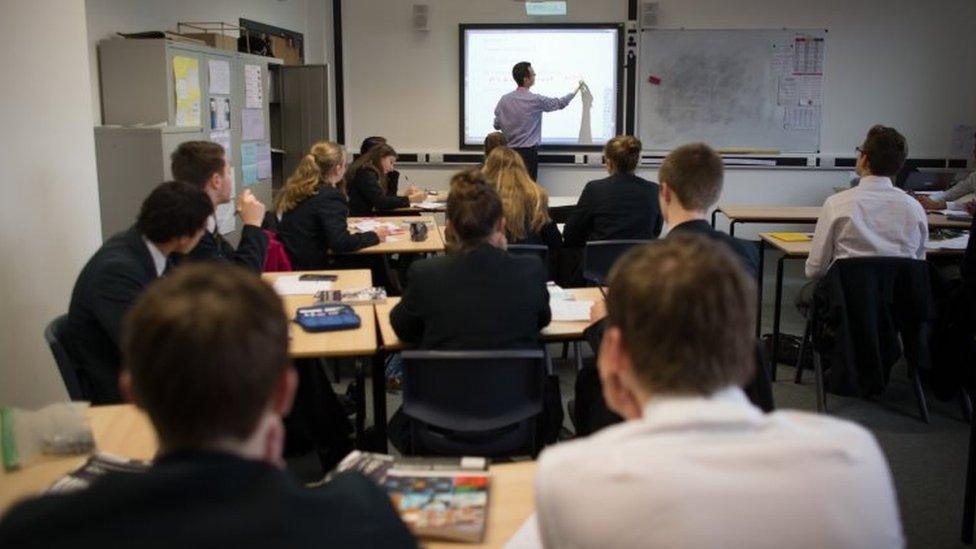Wales teaching job adverts outstripping supply, figures show
- Published
- comments

Figures showing the number of teaching job adverts in Wales is outstripping supply has prompted concern from a teaching union.
Since 2007, the number of job adverts has risen by 9.4% but the number of applicants dropped by 18.6%, the latest Welsh Government statistics showed.
The National Education Union Cymru warned an emerging pattern suggested a problem with recruitment and retention.
Welsh Government said the teacher vacancy rate was comparatively low.
"We know that there can sometimes be local difficulties in recruiting in certain subjects or phase," said a spokesman.
The figures showed at least 14 teaching jobs advertised in Wales last year failed to attract any applicants.
The statistics showed at least six of the unanswered job adverts were for schools in Torfaen, although that has been refuted by the council.
The data, which runs from January to December 2016, does not specify if job posts were re-advertised so the number of unanswered job adverts could be higher still.
On average, figures showed 19 people apply for each job in Swansea compared to 3.5 in Ceredigion.
Ceredigion council said it needed to "overcome the disadvantage" of being far away from more populated commuter areas along the M4 and A55.
It also said Initial Teacher Education, external at Aberystwyth University was "vitally important" so it was able to "recruit the best new teachers".
Torfaen council said there were "no concerns over the recruitment of teachers in Torfaen" and the response to advertised vacancies was "very good and in line with national trends".
A spokesman added the council had "received an adequate number of applications" for all of the posts and made appointments "in all cases".

The figures also showed jobs teaching physical education attracted the most applicants per job - an average of 15.9.
The subjects with the least applicants per job were Welsh as a first language (3.5), chemistry (4.1), biology (4.5) and physics (4.6).
The National Education Union Cymru said the figures were "unfortunately not surprising".
"There is no doubt rising workloads, cuts to teachers pay and pensions and the pressure put on the role are making it more and more difficult to recruit and retain teachers," said Owen Hathway, NEU Cymru policy officer.
"We are not in a crisis situation in Wales but certainly if we do not do more to respond to the concern of teacher workloads, and raise the esteem of the teaching profession, then the ingredients are there for such a crisis to occur."
The Welsh Conservatives claimed the Welsh Government had made teaching an "unattractive profession".
The party's education spokesman Darren Millar said: "[We need] more generous bursaries available for hard to recruit subject areas and to deal with teacher workload issues.
"If we don't act now we will be failing children and young people for many years to come."
The Welsh Government spokesman said: "In recent years, we have targeted the highest levels of support toward attracting top graduates with high levels of degree subject knowledge in the secondary designated priority recruitment subjects of mathematics, chemistry, physics, Welsh, foreign languages and computer sciences.
"Last month, the cabinet secretary announced a new incentive scheme that will target secondary PGCE and all subject specialisms that are designed to enable students to teach bilingually."
- Published14 September 2017

- Published28 July 2017

- Published2 February 2016
